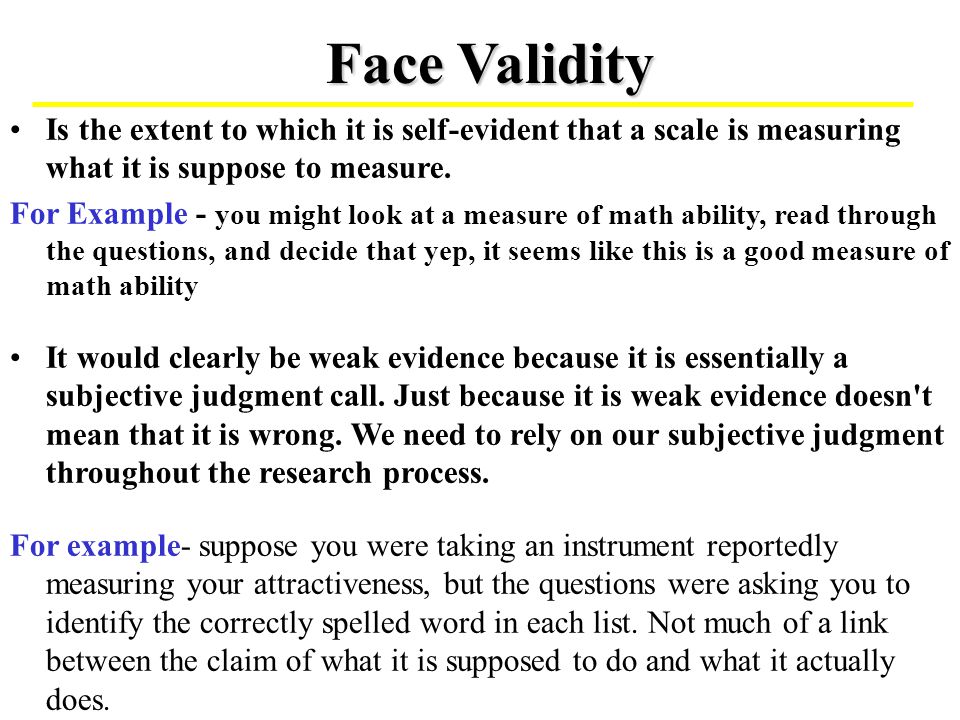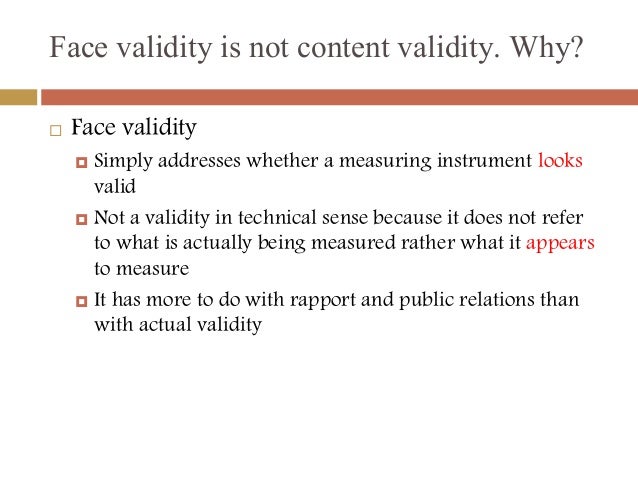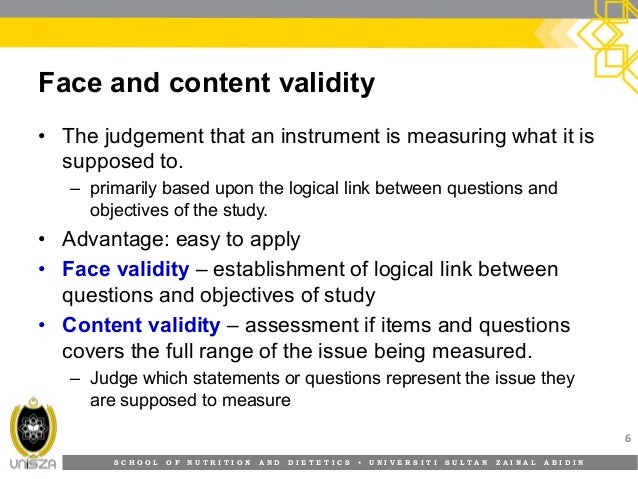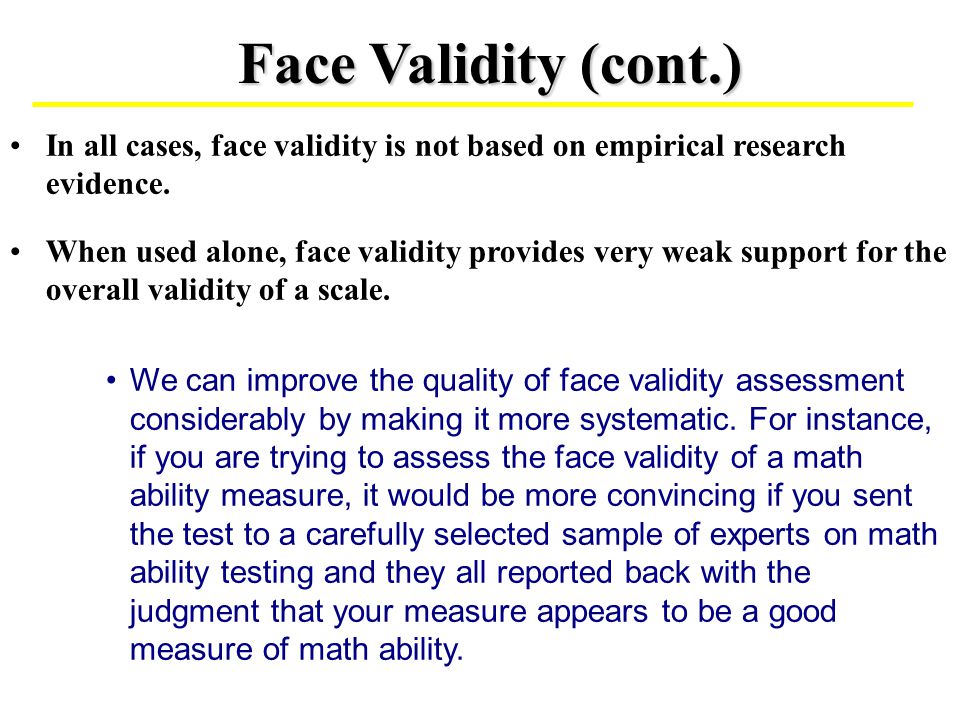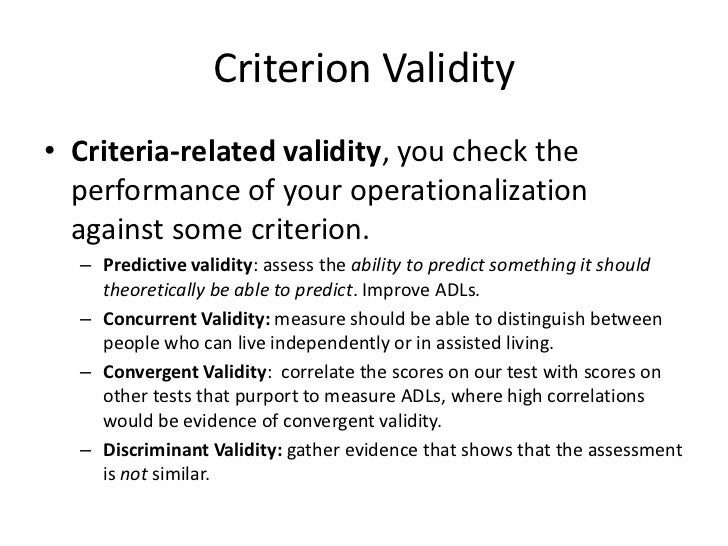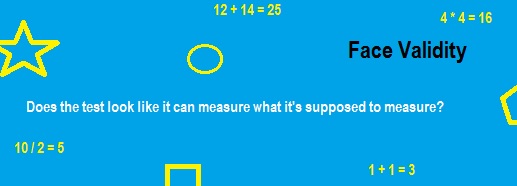Face Validity In Research Methodology
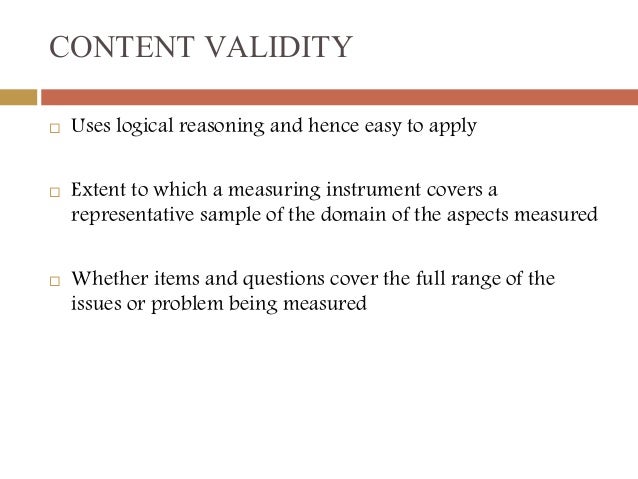
Face validity is a test of internal validity.
Face validity in research methodology. For instance if a survey appears to measure consumer preferences but really measures consumer needs instead the face validity gives a wrong impression of the research. As the name implies it asks a very simple question. Face validity is the most basic type of validity and it is associated with a highest level of subjectivity because it is not based on any scientific approach. In many ways face validity offers a contrast to content validity which attempts to measure how accurately an experiment represents what it is trying to measure.
Face validity is considered to be a superficial method of validity measure as it only takes into consideration what the research or survey appears to measure and not what it really measures. One form is generalizability which represents the extent to which a statement or conclusion applies to populations or settings not included within the context of a specific study. Validity refers to a condition in which statements or conclusions made about reality are reflective of that reality. In other words in this case a test may be specified as valid by a researcher because it may seem as valid without an in depth scientific justification.
A number of forms of validity exist in social science research.



